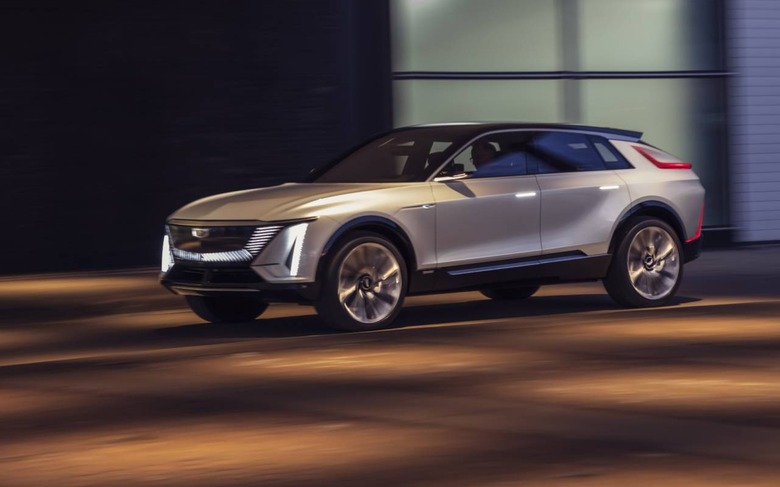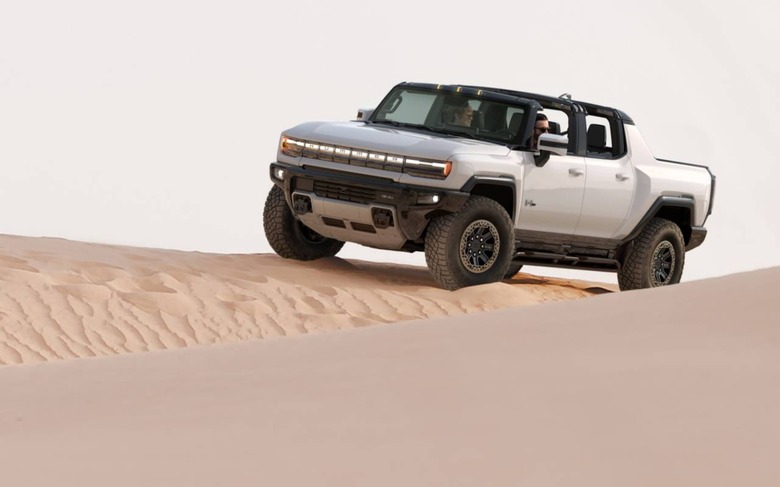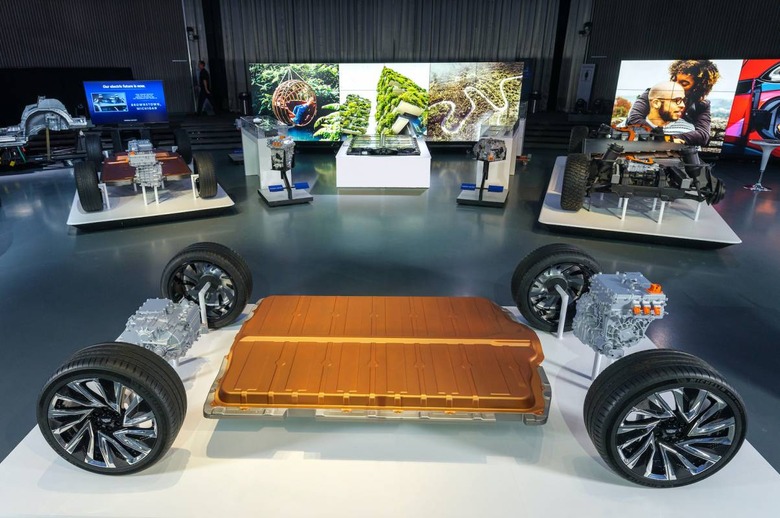GM Ultium max range boosted as EV roadmap accelerates
GM is cranking up its EV ambitions, raising the maximum range estimates for its new Ultium platform for electric vehicles, and increasing the number of launches for its next-generation models. By the end of 2025, the automaker confirmed today, it aims to have thirty new global EV launches under its belt.
40-percent of those EVs offered in the US will be battery-electric, GM says, rather than hybrids. More than two-thirds of the global total will be offered in North America, and they'll be spread across familiar brands including Cadillac, GMC, Chevrolet, and Buick.
We've already seen some of the vehicles GM and its brands have in mind. The 2022 GMC Hummer EV, for example, will be the first of the Ultium-based models to launch, landing in dealerships next year. That's including a development schedule acceleration for the electric truck, with GM moving up its schedules for 12 vehicles in total.

The Cadillac Lyriq will now arrive in the first quarter of 2022, GM says, nine months ahead of schedule. There'll be four Cadillac EVs and three other GMC Ultium variants, including an EV pickup. Four Chevrolet EVs are planned, including a pickup and a compact crossover. Buick will have two Ultium-based EVs.
They'll benefit from a platform which General Motors says is better than it first promised. Back when it unveiled Ultium earlier in the year, the automaker said it expected 400 miles of range from the EVs with the largest battery packs. Now, it's raising that estimate to 450 miles.

In the pipeline, meanwhile, is the second-generation Ultium. There, the improvements aren't only in performance but economics. "GM's second-generation Ultium chemistry is projected to deliver twice the energy density at less than half the cost of today's chemistry," the company said today. "GM is already prototype testing this next-generation technology, which is expected to be available mid-decade."
In short, GM promises, Ultium developments are expected to bring its EVs at least closer to pricing parity with gasoline vehicles. It'll continue licensing out the technology, too. Honda has already inked a deal to use Ultium for two new EVs, which will use its brand and be sold in North America.

Unsurprisingly, all this is going to involve a lot of investment. "More than half of GM's capital spending and product development team will be devoted to electric and electric-autonomous vehicle programs," the company says. It's also "hiring 3,000 electrical system, infotainment software and controls engineers, plus developers for Java, Android, iOS and other platforms."
In total, it's expecting to spend $27 billion on EVs and autonomous vehicle technology development through 2025. That's $7bn more than it suggested was on the spreadsheet earlier in the year. Next year, meanwhile, construction will begin on a new Battery Innovation Lab and Manufacturing Technology Center, where the next-gen Ultium battery chemistry will be developed.
